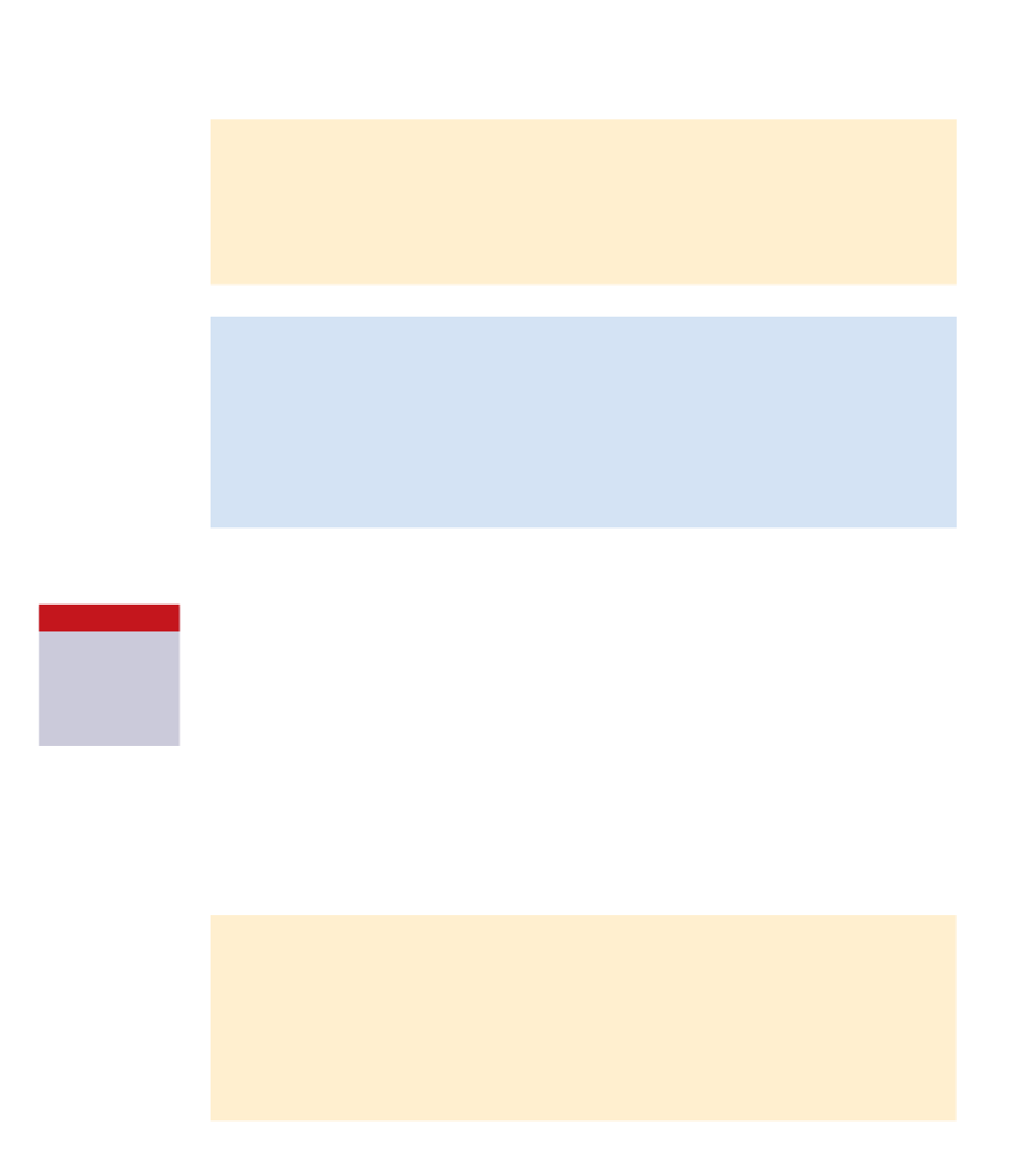Java Reference
In-Depth Information
is mostly a question of preference. Our style is not necessarily better than all others. However,
it is important to choose one style and then use it consistently, because then your classes will be
easier to read and understand.
Code 2.2
Our ordering of fields,
constructors, and
methods
public
class
ClassName
{
Fields
Constructors
Methods
}
Exercise 2.10
From your earlier experimentation with the ticket machine objects within BlueJ,
you can probably remember the names of some of the methods-
printTicket
, for instance.
Look at the class definition in Code 2.1 and use this knowledge, along with the additional infor-
mation about ordering we have given you, to make a list of the names of the fields, constructors,
and methods in the
TicketMachine
class.
Hint:
There is only one constructor in the class.
Exercise 2.11
What are the two features of the constructor that make it look significantly
different from the methods of the class?
2.4.1
Fields
Fields store data persistently within an object. The
TicketMachine
class has three fields:
price
,
balance
, and
total
. Fields are also known as
instance variables,
because the word
variable
is used as a general term for things that store data in a program. We have defined
the fields right at the start of the class definition (Code 2.3). All of these variables are asso-
ciated with monetary items that a ticket-machine object has to deal with:
Concept:
Fields
store data
for an object to
use. Fields are also
known as instance
variables.
■
price
stores the fixed price of a ticket;
■
balance
stores the amount of money inserted into the machine by a user prior to asking for
a ticket to be printed;
■
total
stores the total amount of money inserted into the machine by all users since the ma-
chine object was constructed (excluding any current balance). The idea is that, when a ticket
is printed, any money in the balance is transferred to the total.
Code 2.3
The fields of the
TicketMachine
class
public
class
TicketMachine
{
private
int
price;
private
int
balance;
private
int
total;
Constructor and methods omitted.
}

Search WWH ::

Custom Search